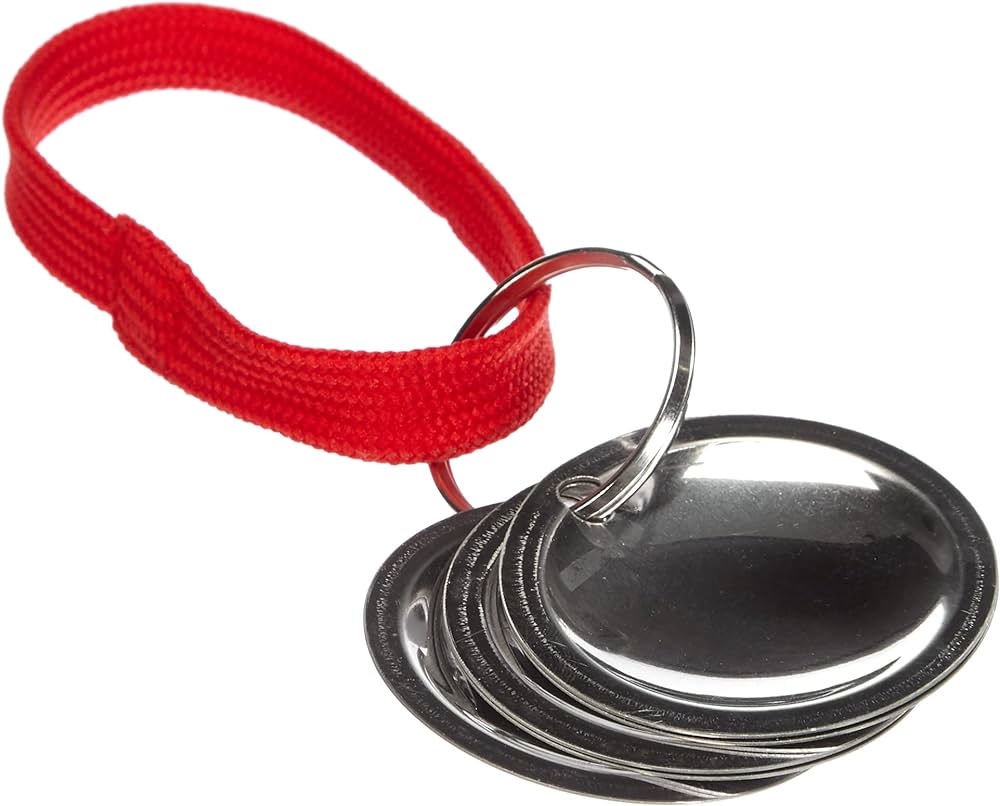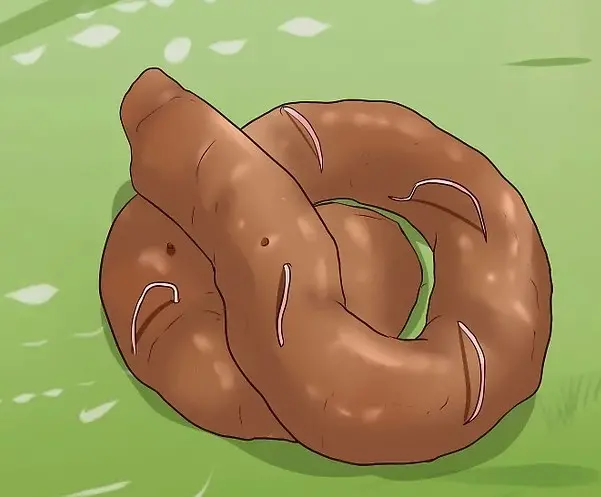How to Identify Signs of Worms in Dogs: A Guide for Pet Owners. Learn how To spot signs of worms in dogs with this simple guide for pet owners. Understand The symptoms, treatment options, & prevention techniques in clear & easy-To-understand language. Keep your furry friend healthy & happy with our useful tips.

Signs of Worms in Dogs
Introduction
As a pet owner, it’s important To be vigilant about your dog’s health. One common issue that dogs can face is a worm infestation. These parasites can cause a range of health problems for your furry friend, so it’s crucial To be able To identify The signs of worms. In this guide, we will explore The different types of worms that can affect dogs, The symptoms To look out for, & what steps you should take if you suspect your dog has worms.
Types of Worms that Affect Dogs
There are several types of worms that can affect dogs, including roundworms, tapeworms, hookworms, & whipworms. Each type of worm can cause different symptoms & may require different treatment options. It’s important To be aware of these different worms & their specific characteristics.
Roundworms are The most common type of worm found in dogs. They can be transmitted through infected soil, contaminated food or water, or from an infected mother dog To her puppies. Tapeworms are another common type of worm, which dogs can get from ingesting fleas or infected rodents. Hookworms & whipworms are less common but can still pose a threat To your dog’s health.
Signs & Symptoms of Worms in Dogs
Identifying The signs of worms in your dog is essential for prompt treatment. Here are some common symptoms To look out for:
- Weight loss: Worms can steal important nutrients from your dog’s body, leading To weight loss despite a normal appetite.
- Vomiting: A dog with worms may experience frequent vomiting or have a bloated stomach.
- Diarrhea: Infected dogs may have diarrhea, which can sometimes contain blood or worms.
- Visible worms: In some cases, you may actually see worms in your dog’s vomit or feces.
- Poor coat condition: Worms can affect The appearance of your dog’s coat, leaving it dull & unkempt.
If you notice any of these symptoms in your dog, it’s important To consult with your veterinarian for a proper diagnosis.
Diagnosing Worms in Dogs
To diagnose worms in your dog, your veterinarian will typically perform a fecal examination. This involves analyzing a sample of your dog’s feces under a microscope To check for The presence of worm eggs or larvae. In some cases, additional tests may be required, such as blood tests or imaging studies, To confirm a diagnosis & determine The specific type of worm affecting your dog.
Treatment & Prevention
If your dog is diagnosed with worms, your veterinarian will recommend a suitable treatment plan. This may include medication To eradicate The worms & any accompanying symptoms. It’s important To follow your veterinarian’s instructions carefully & complete The full course of treatment, even if your dog’s symptoms improve.
In addition To treatment, prevention is also key in managing worms in dogs. Here are some preventive measures you can take:
- Keep your dog’s living area clean & free of feces.
- Practice good hygiene by washing your hands after handling your dog or their feces.
- Administer regular deworming treatments as advised by your veterinarian.
- Use flea control products To prevent tapeworm infections.
- Ensure your dog’s diet includes high-quality, parasite-free food.
By following these preventive measures & maintaining regular check-ups with your veterinarian, you can help protect your dog from worms & other health issues.
How to Identify Signs of Worms in Dogs: A Guide for Pet Owners

Identifying Signs of Worms in Dogs: A Comprehensive Guide for Pet Owners
About Worms in Dogs
Worms are a common health issue in dogs & can cause a variety of symptoms & complications if left untreated. They are parasitic organisms that can infect The intestines & other organs of dogs, leading To discomfort & illness. It is important for pet owners To be able To identify The signs of worms in their dogs in order To seek appropriate treatment & prevent further spread of The parasites.
While there are different types of worms that can affect dogs, some common ones include roundworms, hookworms, whipworms, & tapeworms. Each type of worm has its own unique characteristics & symptoms. By familiarizing yourself with these signs, you can take The necessary steps To protect your furry friend.
Common Signs of Worms in Dogs
Identifying The signs of worms in your dog can be challenging, as some dogs may not display obvious symptoms. However, there are several common signs To watch out for, including:
- Weight loss or poor weight gain
- Visible worms in The stool or vomit
- Diarrhea or constipation
- Increased appetite
- Change in The appearance of The fur or skin
- Coughing or difficulty breathing
- Bloated or distended abdomen
- Weakness or lethargy
- Vomiting
If you notice any of these signs in your dog, it is important To consult a veterinarian for proper diagnosis & treatment.
Prevention & Treatment
Preventing a worm infestation in your dog is essential for their overall health & well-being. Here are a few preventive measures you can take:
- Administer regular deworming treatments as recommended by your veterinarian.
- Maintain proper hygiene by cleaning up after your dog & disposing of their waste properly.
- Keep your dog away from areas known To be contaminated with worm eggs or larvae.
- Regularly check your dog’s stool for signs of worms.
- Minimize exposure To fleas & ticks, as they can also transmit certain types of worms.
In case your dog does become infected with worms, prompt treatment is crucial. Your veterinarian may prescribe medication To eliminate The worms & may also recommend additional steps To prevent re-infection.
Html Format Comparison Table
| Signs of Worms in Dogs | Before The Last Heading |
|---|---|
| Weight Loss or Poor Weight Gain | 🐛🐶 |
| Visible Worms in Stool or Vomit | 🐛🐶 |
| Diarrhea or Constipation | 🐛🐶 |
| Increased Appetite | 🐛🐶 |
| Fur or Skin Changes | 🐛🐶 |
Seeking Veterinary Care
If you suspect that your dog has worms or if you have observed any of The signs mentioned, it is important To seek veterinary care. A professional opinion can confirm The presence of worms, identify The specific type of worm, & prescribe appropriate treatment.

During my years of experience as a pet owner, I have encountered instances of worm infestations in my own dogs. I learned The importance of regular deworming & how To identify The signs of worms early on. By taking prompt action, I was able To provide my dogs with The necessary treatment & alleviate their discomfort.
Remember, early detection & treatment are key To ensuring The well-being of your furry friend. Stay vigilant, maintain good hygiene practices, & consult your veterinarian if you suspect your dog may have worms. With proper care, you can keep your dog happy, healthy, & free from worms!
Note: For more information on worms in dogs, you can visit https://nexgard.com.au/dog-parasites/worms. To learn about The importance of parasite prevention, The Centers for Disease Control & Prevention provides valuable resources at https://www.cdc.gov/parasites/resources/web/roundworms_hookworms.html. For additional pet care tips, feel free To explore https://dogcuty.com.
How to Identify Signs of Worms in Dogs: A Guide for Pet Owners
What are some signs of worms in dogs?
Some common signs of worms in dogs include weight loss, a potbelly appearance, diarrhea, vomiting, scooting on their bottom, coughing, a dull coat, & visible worms in their feces or around The anus.
How can I tell if my dog has worms?
To determine if your dog has worms, you can look for signs such as changes in their appetite & activity level, appearance of worms in their stool or vomit, or observe any discomfort or itching around their anus.
Are there different types of worms that can affect dogs?
Yes, there are several types of worms that can affect dogs, including roundworms, tapeworms, hookworms, whipworms, & heartworms. Each type of worm may cause different symptoms & require specific treatments.
Can worms in dogs be dangerous To humans?
Some types of worms in dogs can be transmitted To humans, especially through contact with contaminated feces. It is important To practice good hygiene & regularly deworm your dog To reduce The risk of transmission To humans.
How often should I deworm my dog?
The recommended frequency for deworming dogs typically depends on various factors like their lifestyle, risk of exposure To worms, & regional prevalence. It is best To consult with your veterinarian To determine The appropriate deworming schedule for your dog.
What should I do if I suspect my dog has worms?
If you suspect your dog has worms, it is important To take them To a veterinarian for proper diagnosis & treatment. Your veterinarian can perform various tests, such as examining stool samples, To determine The presence of worms & recommend The appropriate treatment plan.
How can I prevent my dog from getting worms?
To prevent your dog from getting worms, you should regularly clean up their feces, avoid areas with high worm contamination, practice good hygiene, maintain a regular deworming schedule, & ensure your dog is on a parasite prevention program recommended by your veterinarian.
Conclusion
In conclusion, identifying signs of worms in dogs is essential for pet owners To ensure The health & well-being of their furry friends. By paying close attention To their dog’s behaviors & regularly examining their stool, pet owners can catch any potential worm infestation early on. Remember To look out for symptoms such as weight loss, vomiting, diarrhea, & a change in appetite, as these can be indicative of worms. If you notice any of these signs or suspect that your dog may have worms, it is important To consult a veterinarian for a proper diagnosis & treatment plan.
It is crucial for pet owners To understand that prevention is key in keeping their dogs worm-free. Regularly deworming your dog as recommended by your veterinarian, practicing good hygiene, & keeping your dog’s living environment clean can significantly reduce The risk of worm infestations. Additionally, maintaining a nutritious diet & providing your dog with a clean source of water can help strengthen their immune system, making them less susceptible To worms.

Remember, early detection & treatment are vital when it comes To parasites in dogs. By being vigilant & proactive in monitoring your dog’s health, you can ensure a happy & healthy life for your beloved pet.
